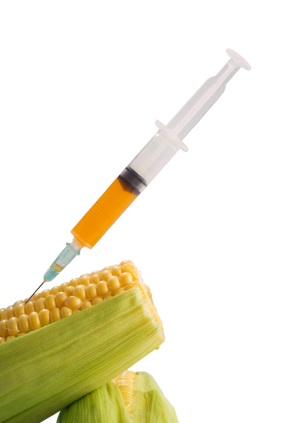EU caving in to pressure with positive EFSA opinion on Monsanto’s maize
A deeply worrying trend is that the EU now appears to be caving in to the intense pressure to accept GMOs, against the wishes of a great many of its more enlightened citizens and Member States. This is evident with the recently published opinion on Monsanto’s controversial maize, MON863, by the European Food Safety Authority (EFSA), which states that "the EFSA GMO Panel reiterates its previous conclusions that GM maize MON863 and its products which are the subject of this application are unlikely to have an adverse effect on human and animal health or the environment in the context of its intended uses".
The GMO Compass website makes clear that, as a result of this positive opinion, additional authorisations of food and feed products derived from genetically modified maize can now be expected in the EU.
Action you can take:
Another action to take, would be to express your views to your local supermarket, or other retail outlet, and vote with your wallet! We strongly urge you to try to avoid buying or consuming any GM foods or animal products derived from animals fed GM feed.
Opportunity to make compulsory GM labelling of animal products derived from animals fed GM feed
On 4 May 2010, the European Parliament’s Environment, Public Health and Food Safety Committee (ENVI) will vote on an amendment (Article 8(7)) to the EU’s Novel Food Regulation which would make it mandatory for all animal products derived from animals fed GM feed to be labelled with the following wording: "produced from animal fed with genetically modified feeding stuffs".
Action you can take:
Write or email your MEP on or before 3 May 2010 letting him/her know your concerns about GM and your support for the amendment as you want to be able to discriminate between foods produced with or without GMOs. You can find out how to contact your MEP here.
UK restaurants not letting customers know about GMOs on the menu!
Many UK catering and fast foods outlets are unaware that they are breaking the law if they do not declare, on their menus or by other conspicuous means, the presence of GMOs in their food. Failure to declare the presence of GMOs in the food served in Europe’s restaurants may result in fines in excess of €20,000. It is likely that many restaurants apparently remain ignorant about either the law, or about the presence of GMOs in the raw materials and ingredients, or both!
All the food supplied for use in the restaurants is also, by law, required to disclose any GMO ingredients on the labels. GM vegetable oil is widely used in frying, and in the case of GM rapeseed oil, which is permitted in the EU, the required wording about the presence of GMOs is actually too inconspicuous to be obvious to chefs and food outlet managers. When GMO labelling is recognised, most are susceptible to pro-GM spin circulated by the world press at the behest of the biotechnology industry and pro-biotech governments, and so believe GM foods are safe.
The UK Food Standards Agency is aware of the problem, but inadequate enforcement means that many people may well be unwittingly consuming food containing GMOs. Virtually all factory farmed, non-organic meat and other livestock products and poultry is fed GM feed.
Helpful action recommended by GMfreeze.org:
If you see GM ingredients labeled in your local café, restaurant, pub, fish and chip shop or take away:
- Ask the proprietors or managers why they are using GM and inform them that you will take your custom elsewhere unless they remove GM from the menu.
If there are no labels, two actions are possible:
- Ask the proprietor or owner to confirm that the facility is not using any GM ingredients including frying oils.
- Contact your local authority and ask what enforcement action it is taking to ensure the GM labelling regulations are being adhered to.
General Election: Party positions on GM crops
With a General Election due in the UK on May 6th, it is interesting to note the positions of some of the parties with regard to their policies on GMOs:
Party positions on GM crops (Farmers Weekly reports on GMOs in the UK general election).
Action you can take:
UK citizens can voice their opinions about these positions to their appropriate local MPs. Please see our ‘Get Involved’ page for help with contacting your MP.
A million signatures for a ban on GM foods
A new initiative allows 1 million EU citizens a unique chance to make official requests of the European Commission. Avaaz.org is calling for Europeans to build a million voices for a ban on GM foods until the research is done, and to spread the word about this.
Europeans, please sign the Avaaz online petition, calling on the President of the European Commission, Jose Manuel Barroso, to put a moratorium on the introduction of GM crops into Europe, and to set up an independent, ethical, scientific body to research the impact of GM crops and determine regulation.
Europeans, please also respond to the EFSA consultations on GMOs
European Food Safety Authority launched the public consultations on guidance for environmental risk assessment of GM plants in early March. European anti-GM supporters and organisations are urged to respond by the 30th April deadline. The consultations are:-
- Public consultation on the draft scientific opinion on the assessment of potential impacts of genetically modified (GM) plants on non-target organisms (NTOs)
- Public consultation on the draft guidance document for the environmental risk assessment of genetically modified plants
Say No to GM campaign page








Comments
your voice counts
There are currently no comments on this post.
Your voice counts
We welcome your comments and are very interested in your point of view, but we ask that you keep them relevant to the article, that they be civil and without commercial links. All comments are moderated prior to being published. We reserve the right to edit or not publish comments that we consider abusive or offensive.
There is extra content here from a third party provider. You will be unable to see this content unless you agree to allow Content Cookies. Cookie Preferences